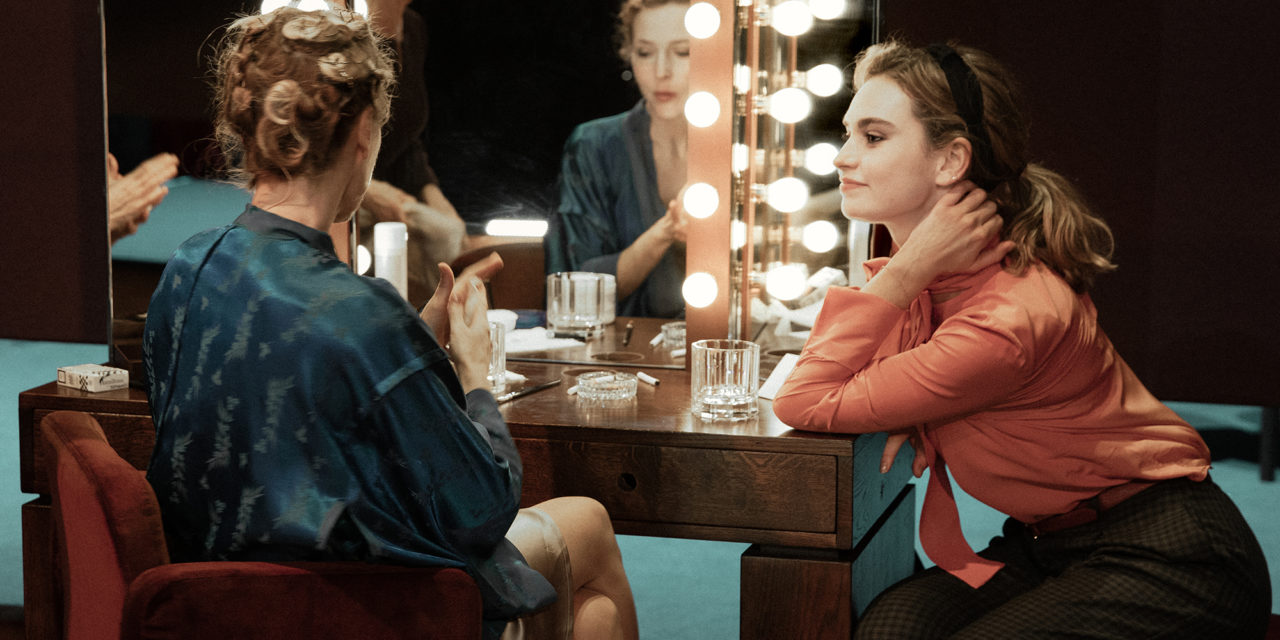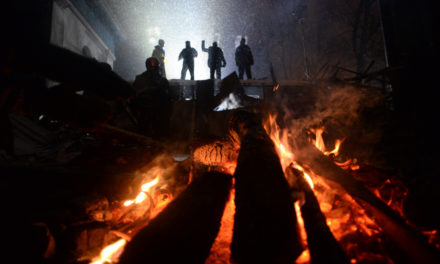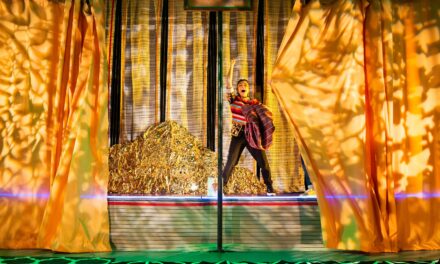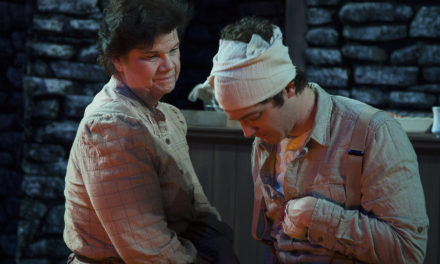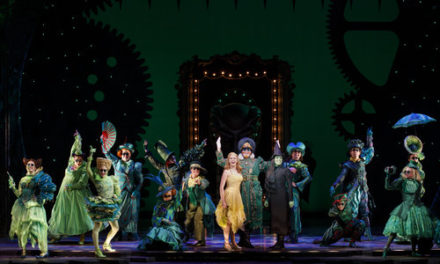Some seventy-odd years ago, New Yorker Mary Orr wrote a short story for the Cosmopolitan magazine about Eve Harrington, an ingénue who abuses her position as a fan-turned-personal assistant to the star Margola Cranston to build her own career as an actress. In 1951, the film inspired by this story–All About Eve–picked up six Academy Awards, including one for the screenplay which went to the director/screenwriter Joseph L. Mankiewicz. It is a delightful script featuring many memorable wisecracks and a well crafted, twisting plot which deftly steers clear of cliché or indeed of most familiar tropes.
A familiar trope, especially in the aftermath of the #metoo movement, might be a story in which a man abuses his power to blackmail or humiliate a woman in her pursuit of success. Or a situation which befell Mary Orr herself–that a man ended up getting the accolade for what was her original creation. In Mary Orr’s/Joseph L. Mankiewicz’s story the focus is instead on a woman who climbs to the top using both her feminine charms and shameless scheming–a woman who will, at least in the screenplay itself, be described as a “killer,” an equal to the towering terrifying theatre critic Addison De Witt in her “contempt for humanity, inability to love, insatiable ambition and talent.”
It is interesting that in a program note for this latest production directed by Ivo Van Hove for Sonia Friedman and Fox Stage productions, critic Lyn Gardner describes this story as a “fairytale.” The term is a fitting encapsulation both because the scenario seems fantastic (in various senses of the word), and because, Mankiewicz’s version at least, has what we might broadly consider a happy end.
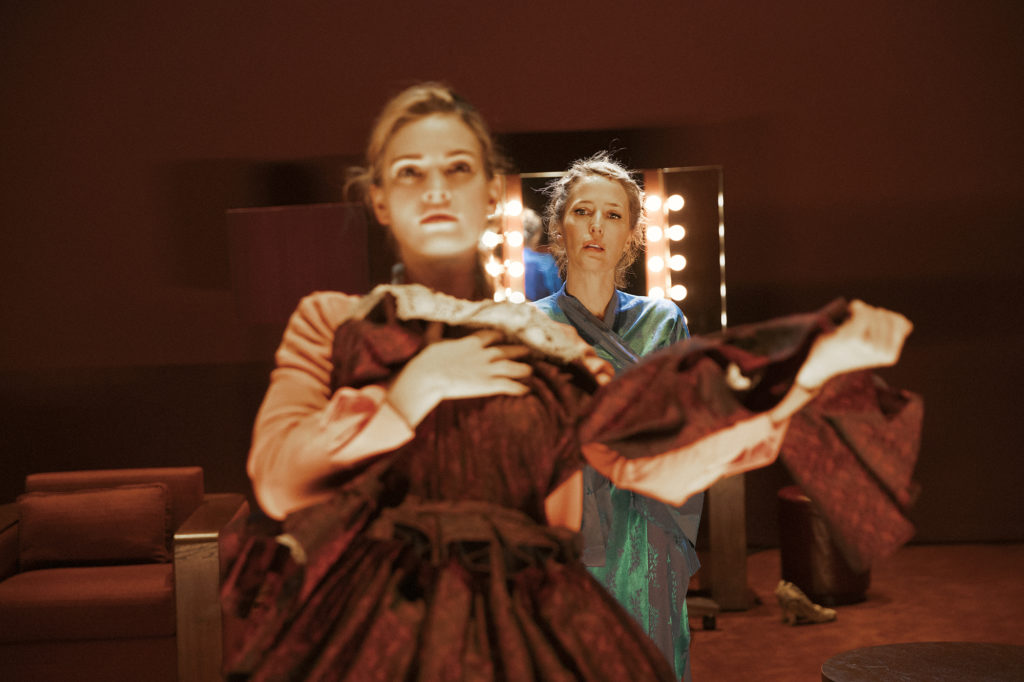
Lily James and Gillian Anderson. Photography by Jan Versweyveld
To remind ourselves: unfortunate young woman Eve Harrington gains access to the inner circle of actress Margo Channing–played in the film with boundless charisma by Bette Davis–an aging leading lady in a relationship with a younger but completely adoring man, theatre director, Bill Sampson. It is Channing’s friend Karen Richards, the wife of the “commercially most successful playwright in America,” Lloyd Richards, that actually takes pity on Eve in the first place and brings her into the foursome’s lives. By the end of the film Eve takes the stardom from Channing and, possibly, the husband from Karen, though she is shown to be morally defeated, alone and prey to others’ personal ambitions. It is a complex story with many intertwining themes: the ruthlessness of show business, the difficulty of being a career woman, fame, success, betrayal, loyalty, etc.
Billed as an adaptation, Ivo Van Hove’s production is extremely faithful to the original in a way that is bound to please the fans. The problem is–this is not what we had come to expect from Ivo Van Hove. Since he burst on the London stage, originally with his Dutch production of Shakespeare’s Roman plays–the Roman Tragedies–at the Barbican in 2009 (which lasted for five and a half hours without a loo break but permitted the audience to roam free around the auditorium and the set throughout), his productions, both those made in Amsterdam and increasingly those made in London, have been awaited with baited breath and sold out box offices.
In the early days, Van Hove’s productions distinguished themselves in the local British landscape through the sharpness of their conceptualization. I particularly remember a moment in 2013 when a short run of Van Hove’s vertiginous Dutch adaptation of Bergman’s film Scenes from a Marriage at the Barbican (with the audience rotating around three interlinked sets containing individual acts played on the loop) coincided with, and eclipsed, Trevor Nunn’s star-studded but prosaic pros-arch version at St James’s. At the time, Van Hove’s productions were often conceived with a dramaturg (Bart van den Eynde) as well as his long term designer-collaborator Jan Versweyveld. Of the two collaborators only the latter remains, but for this latest production, Van Hove has enlisted PJ Harvey into the mix as a composer. We are in the West End of London after all, so this has got to be another star-studded production with Gillian Anderson of X-Files fame playing Margo Channing, and Lily James as the beautiful young predator Eve.
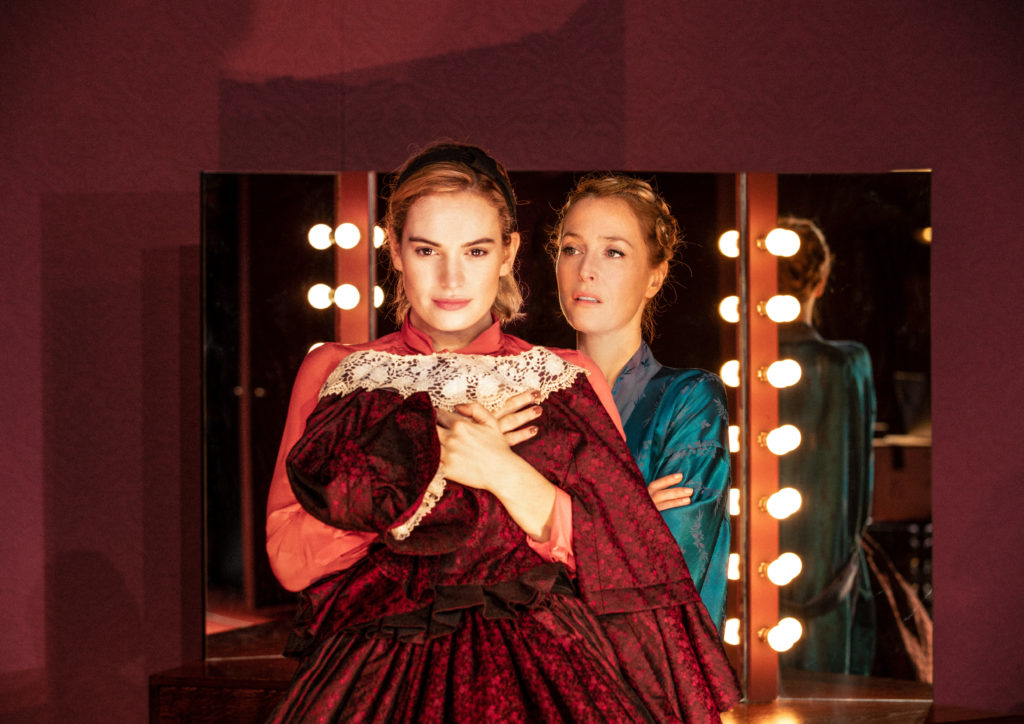
Lily James and Gillian Anderson. Photograph by Jan Versweyveld
Keeping the screenplay dialogue virtually intact in its vintage Hollywood witty splendor, Van Hove’s adaptation boils down to a few subtle but determined interventions. The first decision, reminiscent of his other memorable hit Kings Of War, is the concept of the stage area as a box within a box that results in the division between the inner, warm, comfortable space of Margo’s life, and the outer, backstage, bare brick-walled space of the real world. This amorphous enclosure that can double up as easily as a bedroom, theatre dressing room, and a salon, also features two smaller self-contained chamber-cells representing a kitchen and a bathroom respectively. We are part of the inner space although its three walls can be occasionally partially lifted to give us a glimpse of the gritty and winding world beyond. For the most part, the director uses a camera to take us into the backstage area, or into the smaller utility rooms, a simple and effective technique which helps to create crowds when needed (mostly for the centerpiece party scene). The second fundamental decision is the use of a theatrical dressing up mirror which serves as a key part of the set, but also features an inbuilt camera that helps to frame moments of self-assured narcissism or pained introspection, thus adding another layer to the rich video-scape of this production. It is Van Hove’s camera too that gives us the most extreme aspects of this adaptation–the abject close-ups of Channing in the throes of despair that the Hollywood classic never had the bad manners to suggest.
That said, the show’s look is sleek and glamorous in an understated 21st century way. Anderson sounds like Davis in her most memorable moments from the film, though she does not quite maintain the sturdiness of the original diva. Lily James is convincing, and the rest of the cast engaging throughout. Van Hove’s other major intervention is the decisive gesture towards inclusivity. The character of Birdie, Channing’s dresser, is consigned to oblivion by the second half of the film, but here she is quite deliberately kept as a member of the inner circle throughout. Similarly, this principle is also, perhaps somewhat clumsily, reflected in an attempt at racially diverse casting for the production.
A good thing about theatrical adaptation of films is that it allows for certain aspects of the original to be seen and heard from a new perspective, as if for the first time. Given the constant underlining of the inside and the outside world through the staging, this theatrical piece seems to single out from the film and bring into sharper focus, the theme of loyalty. In the increasingly solipsistic 21st century, it is ultimately this decision to conclude with the triumph of collectivist values that perhaps gives this show the distinct sense of a fairytale.
This post was written by the author in their personal capacity.The opinions expressed in this article are the author’s own and do not reflect the view of The Theatre Times, their staff or collaborators.
This post was written by Duška Radosavljević.
The views expressed here belong to the author and do not necessarily reflect our views and opinions.

